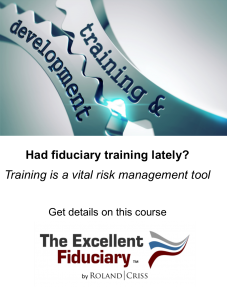Article
After all, not every CFO or human resource leader is an expert in all employee benefits programs. Although executives in these positions are responsible for making important decisions about the organization’s benefits, their primary duties are elsewhere. Consequently, partnering with the appropriate health and welfare plan broker is crucial.

Asking for client samples and referrals are two ways to determine if a broker is reliable and has the necessary experience.
What to Look for in a Broker
By assisting benefits decision-makers in selecting the best carrier and plan design, reducing the cost of health insurance, remaining current on regulations and legislation, and other matters, the proper broker can serve as an extension of your benefits team. The best place to start is by determining what your team and company need in order to succeed.
Look for a broker who is familiar with your industry before making your selection. Many brokerages focus on particular industry sectors or size groups. A manufacturing company’s benefits requirements probably differ from those of a financial services firm or a non-profit institution.
Asking for client samples and referrals are two ways to determine if a broker is reliable and has the necessary experience. Long-term clients are a good sign since strong teams and resources help clients stay with their brokerage business.
Evaluate the Quality of the Data
The data is fantastic. But valuable and useful insights are better. The questions you use in evaluating the broker include: What kind of benchmarking do you get, and how are their plans compared to others? Does the broker employ a benchmarking tool that allows for segmentation by location, size, and industry? (You can slice trustworthy and extensive data to understand better how your approach is aligned from a competitive perspective.)
Testing for Service Quality
Are you meeting with the person who will be assisting you when you meet with a prospective new broker and start building relationships? You don’t want to be transferred to a brand-new team after developing a relationship with a salesperson because they won’t be as familiar with your company.
If the salesperson is still actively participating, they may make sure that your needs are being addressed and that the connections made during the sale are maintained. Also, having a second person on your side who knows your business’ challenges is beneficial.
Learn about Roland|Criss’
fiduciary management framework.
Five questions can help gain a valuable perspective on a broker’s servicing competency.
- Is the team I’m hiring qualified to handle my business’ ongoing requirements, and how will our teams cooperate?
- Does the broker take the time to understand our needs and bring in the appropriate professionals to address any unplanned issues?
- What level of communication with the broker does my team need or want, and how might that impact the price?
- What are our projected employee growth numbers, and how can that impact the broker’s compensation?
- To what extent has the broker examined the health or welfare plans’ data security policies and procedures they recommend?
What to Expect from a Broker
Effective brokers see your organization as a partner rather than a client. They will try to ensure your inquiries are addressed, and your problems are resolved, rather than keeping track of the number of hours spent on your account.
Additionally, they are constantly fighting for you, emphasizing general openness and seeking strategies to lower health and welfare plan expenditures while preserving a competitive benefits package.




